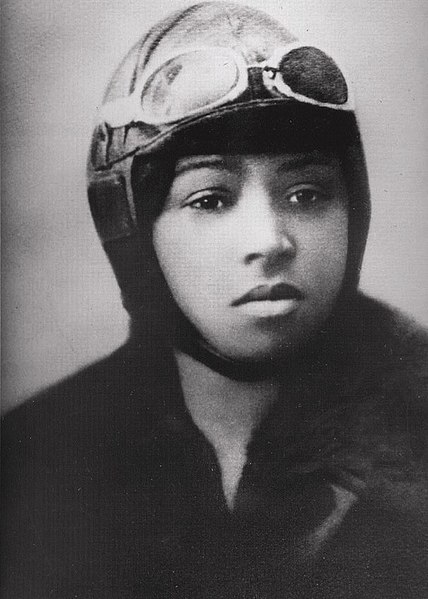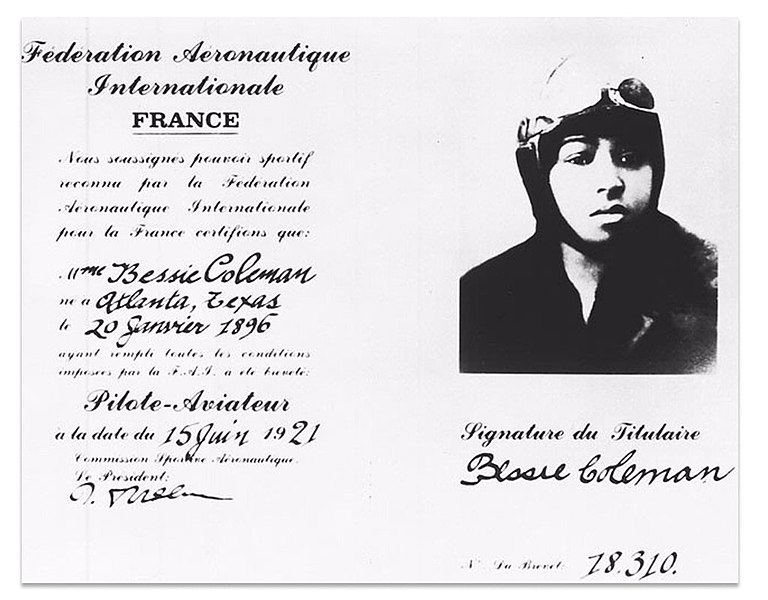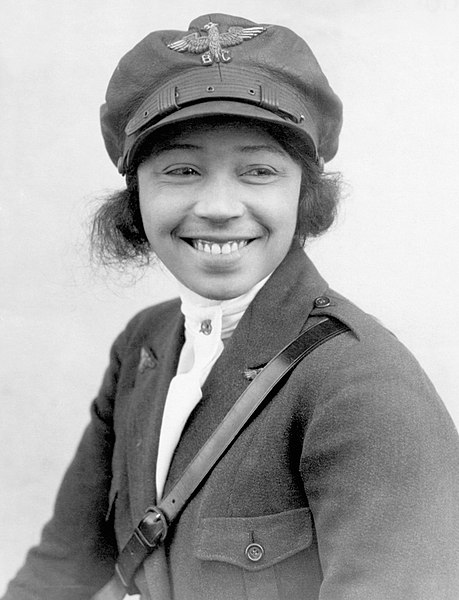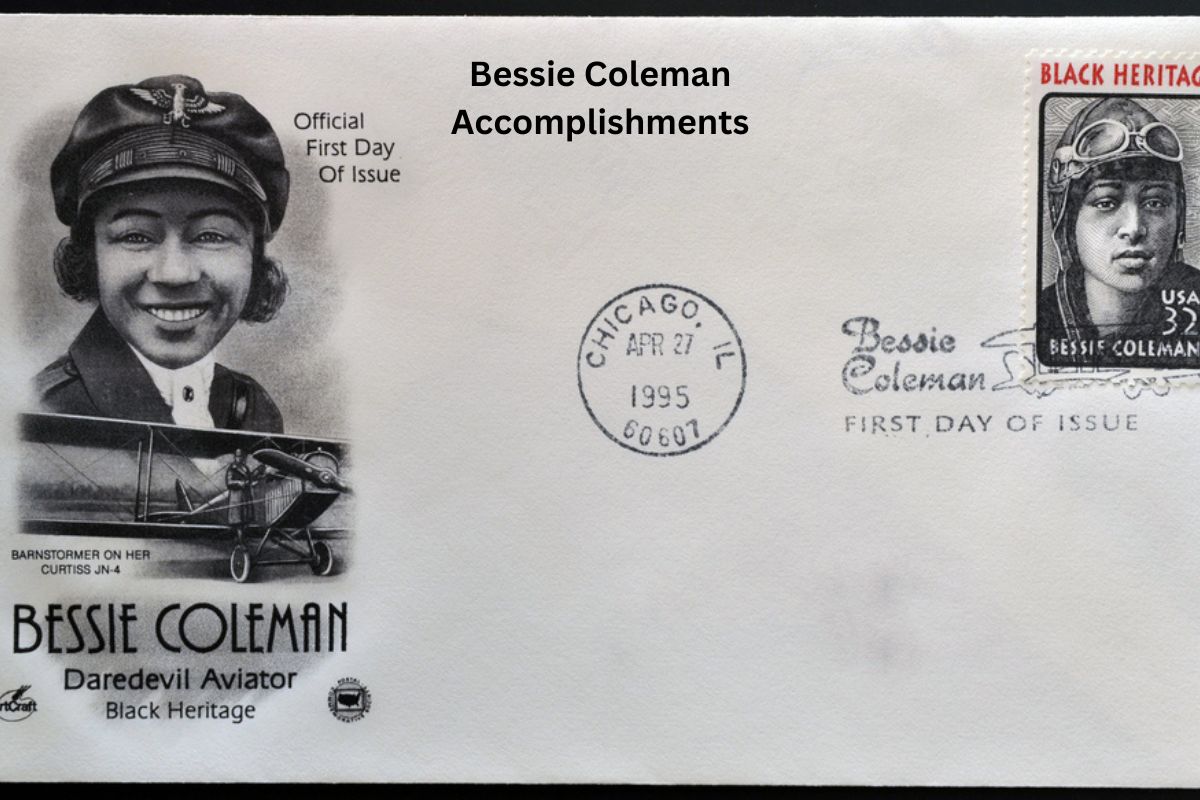Bessie Coleman, a trailblazing African American aviator, achieved remarkable milestones in the early 20th century, despite the daunting barriers of racial and gender discrimination.
Her pioneering spirit, daring feats in the sky, and unwavering commitment to breaking down aviation’s racial divide have left an indelible mark on history.
This introduction provides a glimpse into the extraordinary life and accomplishments of Bessie Coleman, who continues to inspire generations with her legacy of resilience and determination.
Accomplishments of Bessie Coleman
1. First African American woman to hold a pilot’s license
Bessie Coleman made history on June 15, 1921, when she became the first African American woman in the world to earn a pilot’s license.
This achievement was groundbreaking, as it defied the racial and gender barriers prevalent in the early 20th century, particularly in the field of aviation.
Also Read: Facts About Bessie Coleman
Her pilot’s license was issued by the Fédération Aéronautique Internationale, and it marked a significant milestone in her journey to becoming an accomplished aviator.

2. Pioneering figure in aviation
Bessie Coleman is widely recognized as a pioneering figure in the history of aviation. Her determination to pursue her dream of becoming a pilot, despite the formidable challenges she faced as an African American woman, demonstrated her pioneering spirit.
Coleman’s accomplishments not only broke barriers but also paved the way for future generations of women and people of color to pursue careers in aviation. She became a symbol of resilience and a source of inspiration for those who aspired to overcome obstacles in their own pursuits.
3. Overcame racial and gender discrimination in aviation
Bessie Coleman’s journey to becoming a pilot was marked by the pervasive racial and gender discrimination of her time. In the United States, she encountered numerous barriers that prevented her from receiving flight training due to her race and gender.
Also Read: Timeline of Bessie Coleman
Undeterred by these obstacles, she made the bold decision to travel to France to receive her training, as French aviation schools were more accepting of women and people of color.
By doing so, she not only acquired the skills necessary to become a pilot but also challenged the discriminatory practices that limited opportunities for African Americans and women in aviation.
Her determination and success in overcoming these obstacles serve as a testament to her resilience and the importance of breaking down barriers in aviation and other fields.
4. Trained in France due to discrimination in the U.S
Unable to find a flight school in the United States that would accept her as a student due to her race and gender, Bessie Coleman traveled to France in 1920 to pursue her dream of becoming a pilot.
She enrolled at the Caudron Brothers’ School of Aviation in Le Crotoy, France, where she received her aviation training. The decision to study in France was a significant step in her journey as it allowed her to break free from the racial and gender discrimination she faced in the U.S.
She learned to fly various aircraft, including Nieuport and Caudron planes, during her training, which prepared her for her future career as an aviator.

5. Renowned airshow performer
After returning to the United States with her pilot’s license, Bessie Coleman embarked on a career as an airshow performer. She quickly gained fame for her daredevil aerial stunts and breathtaking maneuvers.
Coleman’s performances often featured loops, barrel rolls, and other acrobatics, captivating audiences and earning her a reputation as a skilled and fearless aviator.
Her airshows not only showcased her flying abilities but also broke down racial barriers in aviation by demonstrating that African American women could excel in this challenging and exhilarating profession.
6. Advocate for African American participation in aviation
Bessie Coleman used her newfound fame and platform as an accomplished aviator to advocate for increased participation of African Americans in the field of aviation.
She believed that her success could serve as an inspiration to others and encourage them to pursue careers in aviation, despite the racial prejudices of the time. Coleman often spoke at events and schools, sharing her experiences and encouraging young African Americans to follow their dreams.
7. Inspired future African American aviators, including the Tuskegee Airmen
Her advocacy efforts contributed to the gradual desegregation of aviation and inspired future generations of African American pilots and aviation professionals, including the famed Tuskegee Airmen, who served during World War II.
Bessie Coleman’s legacy as an advocate for inclusion and diversity in aviation continues to inspire individuals to this day.

8. Received posthumous honors and awards in aviation
Despite facing racial and gender discrimination during her lifetime, Bessie Coleman’s contributions to aviation were recognized posthumously. She received several honors and awards in her name that celebrated her pioneering achievements and lasting impact on the field.
These honors included the establishment of Bessie Coleman Aero Clubs and scholarships in her memory, which aimed to support aspiring African American aviators. Her legacy lives on through these initiatives, which help promote diversity and inclusion in aviation.
9. Subject of books, documentaries, and films
Bessie Coleman’s remarkable life story has been the subject of various books, documentaries, and films. These works highlight her determination, resilience, and groundbreaking achievements in the face of adversity.
By sharing her story through different media, Coleman’s legacy has been preserved and continues to inspire people of all backgrounds to pursue their dreams and overcome obstacles.
10. Commemorated on postage stamps and in memorials
Bessie Coleman has been honored through postage stamps issued by the United States Postal Service, further solidifying her place in American history. Additionally, numerous memorials and tributes have been dedicated to her memory.
These include parks, schools, and airports named after her. The Bessie Coleman Memorial at Chicago’s Lincoln Cemetery, her final resting place, serves as a reminder of her enduring legacy and her role in breaking racial and gender barriers in aviation.
